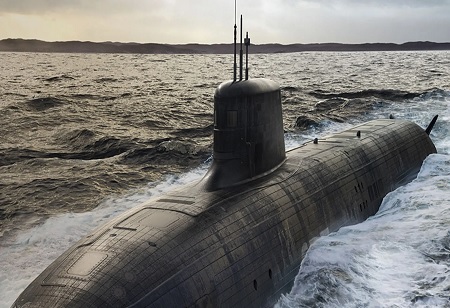
South Korea Eyes Entry into AUKUS Pact with US, UK and Australia

 South Korea has engaged in discussions regarding potential participation in a segment of the AUKUS defense agreement involving the United States, Britain, and Australia, as stated by Defense Minister Shin Won-sik. This development comes just weeks after the pact expressed openness to the idea of involving Japan. Established in 2021, AUKUS represents a two-phase security arrangement aimed at addressing the increasing influence of China in the Asia Pacific area.
South Korea has engaged in discussions regarding potential participation in a segment of the AUKUS defense agreement involving the United States, Britain, and Australia, as stated by Defense Minister Shin Won-sik. This development comes just weeks after the pact expressed openness to the idea of involving Japan. Established in 2021, AUKUS represents a two-phase security arrangement aimed at addressing the increasing influence of China in the Asia Pacific area.
Although the initial phase, which involves providing Australia with nuclear submarine technology, remains exclusive to the core trio, there has been discussion about the potential inclusion of additional nations in the second stage, referred to as 'Pillar 2', which aims to facilitate the sharing of various military technologies. Defense Minister Shin expressed that South Korea could potentially contribute to this second stage with its defense, scientific, and technological expertise. He made these remarks during a press conference following a meeting between the foreign and defense ministers of Australia and South Korea in Melbourne.
“During today’s meeting we also discussed the possibility of partnering with AUKUS Pillar 2”, he said. “We support AUKUS Pillar 2 activities and we do welcome that members are considering Korea as an AUKUS Pillar 2 partner”.
Due to its strong alliance with the US and its globally renowned defense sector, South Korea has often been discussed as a probable partner for Pillar 2, alongside Canada, New Zealand, and Japan. Recently, less than a month ago, the AUKUS partners declared their contemplation of collaborating with Japan on designated Pillar 2 defense initiatives, scheduling talks to explore its potential engagement later this year.
“Korea is a country with deeply impressive technology where we do have shared values,” said Defence Minister Richard Marles. “As AUKUS Pillar 2 develops there will be opportunities in the future, and we’re seeing that play out in relation to Japan as well.”
China, a prominent opponent of the agreement, voiced its concerns in April, stating that the inclusion of additional members would lead to destabilization in the region. The expansion of the pact encounters challenges due to stringent US regulations regarding the sharing of technology. Both Canberra and London are apprehensive that rapid addition of new members could potentially impede the progress of the deal. However, the US State Department revealed a plan aimed at easing these restrictions, thereby simplifying the transfer of military equipment and sensitive technology to Britain and Australia.

